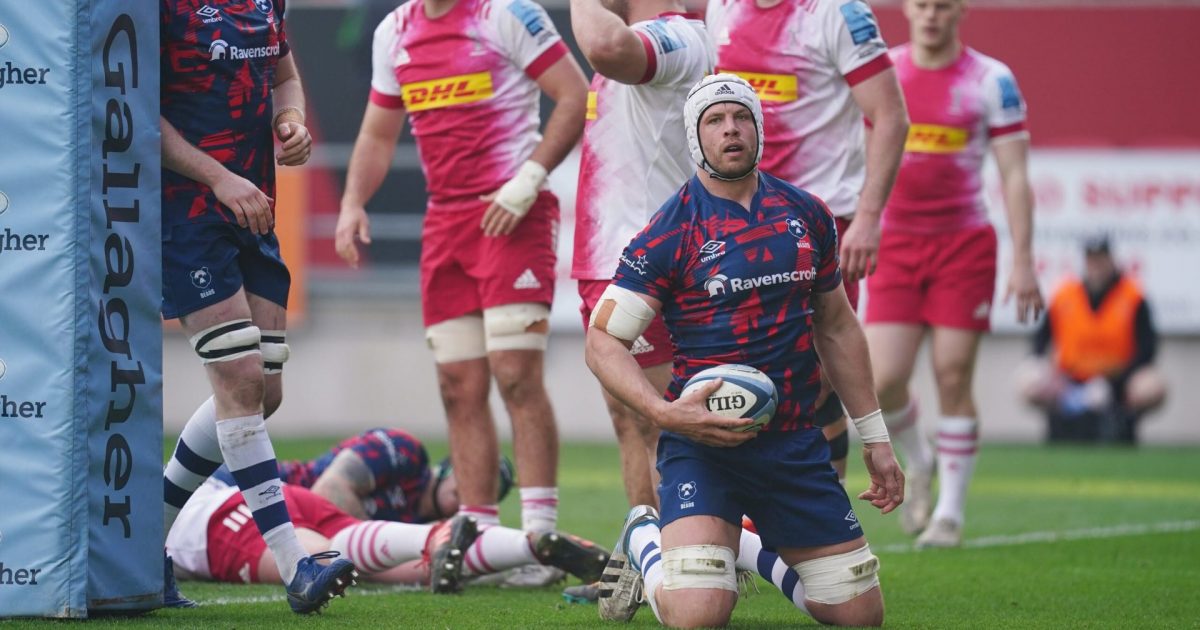Bristol director of rugby Pat Lam has hit out at the length of time the TMO took in reviewing back row Fitz Harding’s yellow card incident during their defeat to Harlequins.
Lam was also critical of his side’s performance as once again they were on the wrong end of the result in another classic game with Quins.
Last season, Harlequins triumphed 43-36 in a superb Premiership semi-final and this time around the Londoners triumphed 38-29 in a game of 10 tries.
Bristol crucially conceded 14 points in the first four minutes before losing flankers Steven Luatua and Sam Jeffries with injuries and their ill-luck continued when another back-rower, Fitz Harding, picked up a dubious yellow card at a vital stage.
Bristol’s tries came from Luatua, Jeffries, Dave Attwood and Bryan Byrne with Callum Sheedy converting three and adding a penalty. Cadan Murley scored the two early tries for Harlequins, with Tom Lawday, Hugh Tizard, Jack Walker and Luke Northmore adding one apiece while Will Edwards kicked four conversions.
Lam said: “We gifted them 14 points as I’m very disappointed that we didn’t do what we intended to do at the start.
“We then ramped it up and played some very good rugby to go ahead in the second half.
? It's the sin-bin for Fitz Harding.
? 29-26 ? (65 mins).#BRIvHAR | #BristolBears
— Bristol Bears ? (@BristolBears) March 13, 2022
“Then Fitz’s yellow card was forensically examined, with the players waiting three or four minutes in the cold and rain, so I don’t think that’s good for the game. We had four similar hits on us but no action was taken so I’d like to study the videos and compare the situations.
“Both sides lost key players to injuries. Luatua has a dislocated wrist and Jeffries a knee problem so losing them early on was difficult to take.
“It’s another game in which we’ve dropped points but we are there or thereabouts and there’s still a lot to play for.”
Quins coach Jerry Flannery was complimentary towards their opponents.
He said: “It was a great game and we are fortunate to come out on the right side of the result as Bristol, under Pat Lam, do not deviate away from their belief in attacking rugby.
“When we lost Danny (Care) to a yellow card, we knew we had to make that period more set-piece orientated and I thought we managed his absence very well.
“The game is evolving to make it safer so yellow and red cards are playing a bigger part in the outcome and no-one wants to lose players so there is a big focus on dropping down to tackle.
“It’s been more challenging this year than last as we have had to try and learn to cope with the loss of some key players to the Six Nations.”
Flannery also paid a big compliment to Care, who made a couple of Quins’ tries even though he picked up his third yellow card in a month.
He said: “For me Danny is the best scrum-half in the league and the best I have ever worked with.
“He is the focus of our team and sets the tempo for us. He is phenomenal at doing that and takes so much pressure off his half-back partner.”


































